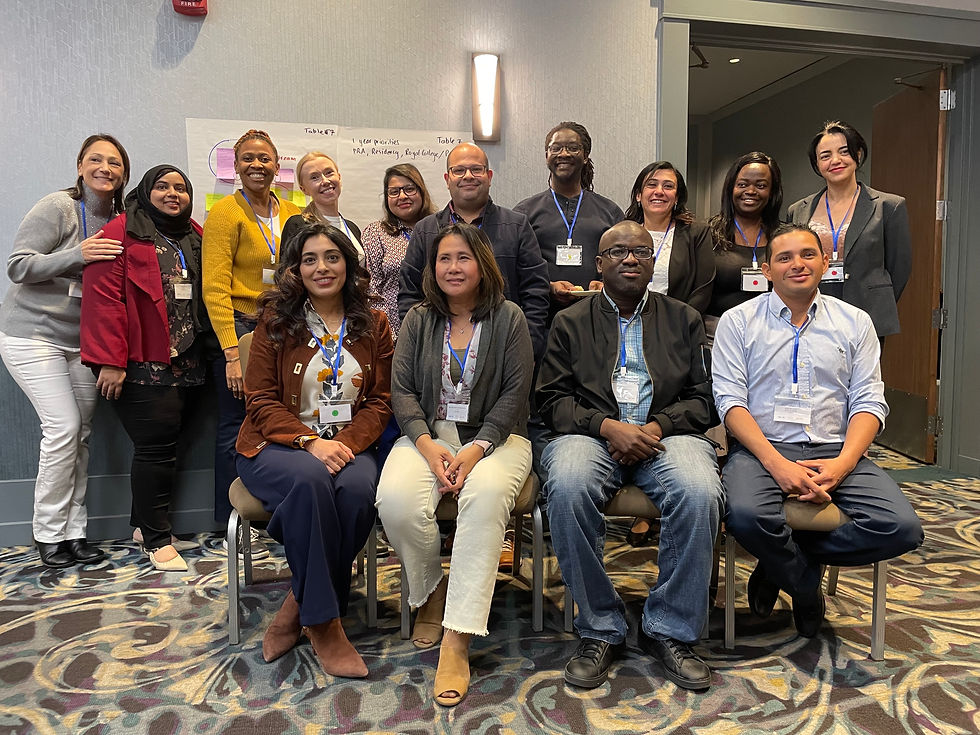The CPSO proposes several ITP-friendly policies
- Directors ITPO

- Sep 8, 2022
- 3 min read
Updated: Sep 15, 2022
In August 2022 the Ontario government directed the CPSO to come up with solutions to the current health human resource crisis. ITPO summarises the ITP-friendly parts of the proposal below. The link to the full CPSO submission can be found at the end of the article.
Summarised by Dr Marwah Saeed and Dr Prachi Patel (PAR volunteers)

On August 18th (2022), the College of Physicians and Surgeons of Ontario (CPSO) submitted a report to the Ministry of Health describing their strategies and efforts to address the healthcare crisis in Ontario.
Background:
With Ontario’s healthcare system in crisis, the province is struggling with a health human resource shortage. In the recent months, there have been reports of staff shortages at hospitals across the province, temporary closure of emergency rooms and intensive care units operating at or close to capacity.
According to the World Education Services, there are at least 13,000 ITPs in the provincial database of Internationally Educated Health Professionals (IEHPs) seeking licensure in Ontario; they remain an underutilized health human resource.
Proposed solutions:
The CPSO proposed several solutions to the Ontario Government, several of which affect Internationally Educated Physicians (IEPs) (called ITPs from here on):
1. Implementing Practice Ready Assessments (PRA) for ITPs
2. Increasing Residency Positions for ITPs
3. Utilizing the existing Supervised Practice of Short Duration class of registration
4. Identifying Greater Training Equivalencies through CPSO policy for ITPs
What does this mean for ITPs:
1. Implementing Practice Ready Assessments (PRA) for ITPs
CPSO is prepared to immediately implement the PRA program in Ontario to introduce ITPs into the system as early as Spring 2023. PRA programs are offered in 7 provinces across Canada with Ontario being one of the few exceptions. PRA serves as a route to independent licensure for ITPs who have already completed their residency and practiced independently abroad. It involves a supervised practical assessment over a period of 12 weeks with deployment to underserved areas.
2. Increasing residency position for ITPs
In the absence of the PRA program in Ontario, residency program through The Canadian Resident Matching Service (CaRMS) is the only available avenue for ITPs to pursue residency and become licensed physicians in the province. Very limited residency positions are currently available for ITPs in Ontario; In 2022, Only 86 seats were offered to ITPs in the family medicine (FM) program a
cross Ontario and according to match data released by CaRMS, 19 FM seats were unfilled at the end of the cycle. It is limiting the opportunity to grow the base of future physicians especially during the current health care crisis in the province. The CPSO has asked the government to immediately increase the number of targeted and additional residency positions available to ITPs which could create quick influx of qualified ITPs and new opportunities for the summer of 2023.
3. Utilizing the existing Supervised Practice of Short Duration class of registration
The Short Duration Certificate is an opportunity for ITPs to help mitigate hospital shortages. This path provides ITPs with a 30-day license to practice under supervision at public hospitals, psychiatric facilities, Crown agencies or an Ontario medical school. CPSO is prepared to offer expeditious licensing for immediate ITP deployment, but it will require a coordinated effort led by the government and/or other agencies to help match the existing pool of ITPs with identified hospital needs.
4. Identifying Greater Training Equivalencies through CPSO policy for ITPs
The Royal College of Physicians and Surgeons of Canada and the College of Family Physicians of Canada have training assessment programs to streamline credentialing for ITPs from specific jurisdictions who have completed training in approved and other jurisdictions deemed equivalent to Cana
dian education standards. The CPSO is re-evaluating whether additional equivalencies and pathways could be explored in lieu of completing national examinations based on, for example, years of practice.
Read more about it at:
https://www.cpso.on.ca/en/News/Publicatio
ns/Submissions-by-CPSO-to-Government
https://www.carms.ca/data-reports/r1-data-reports/








Comentários